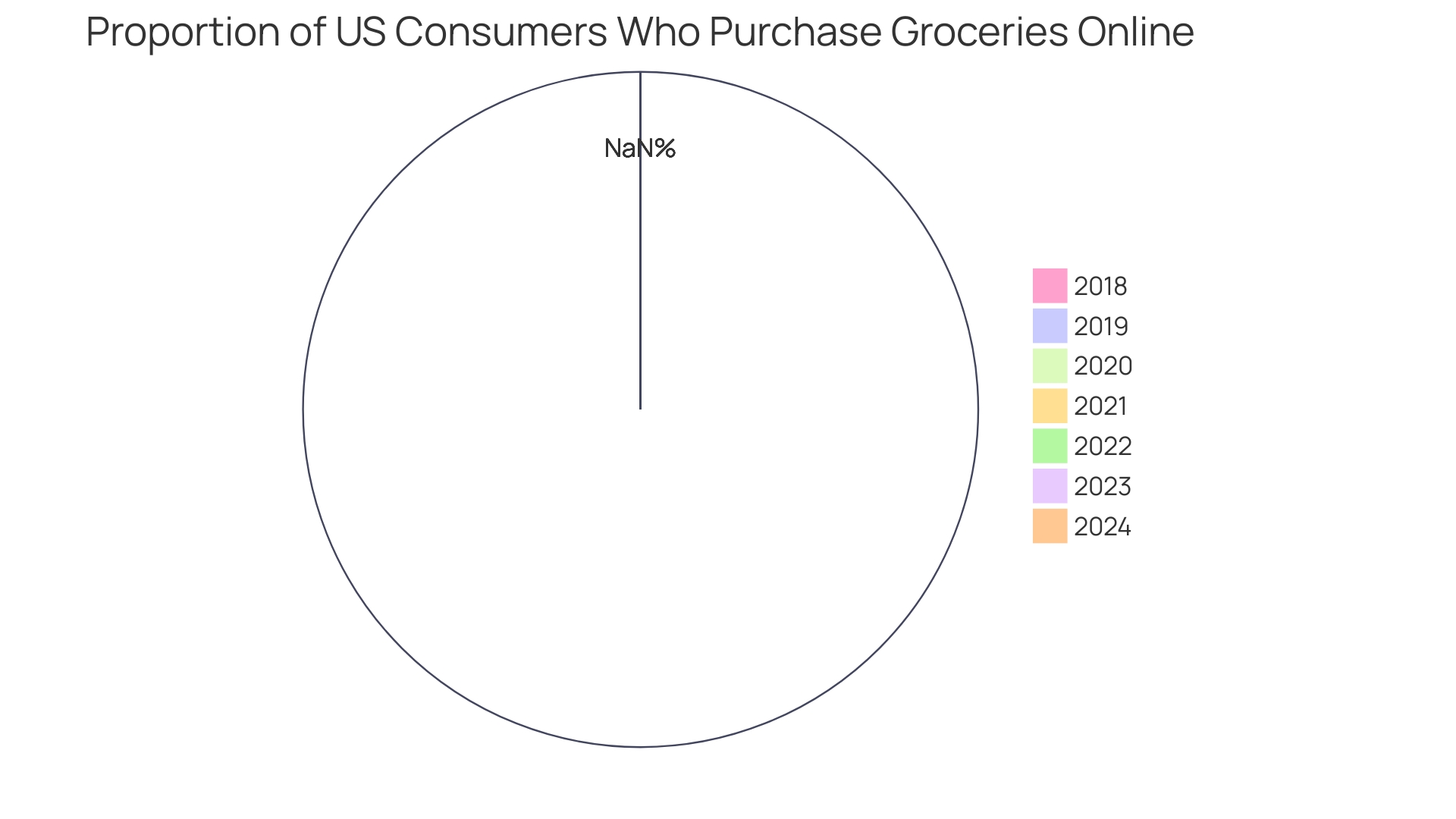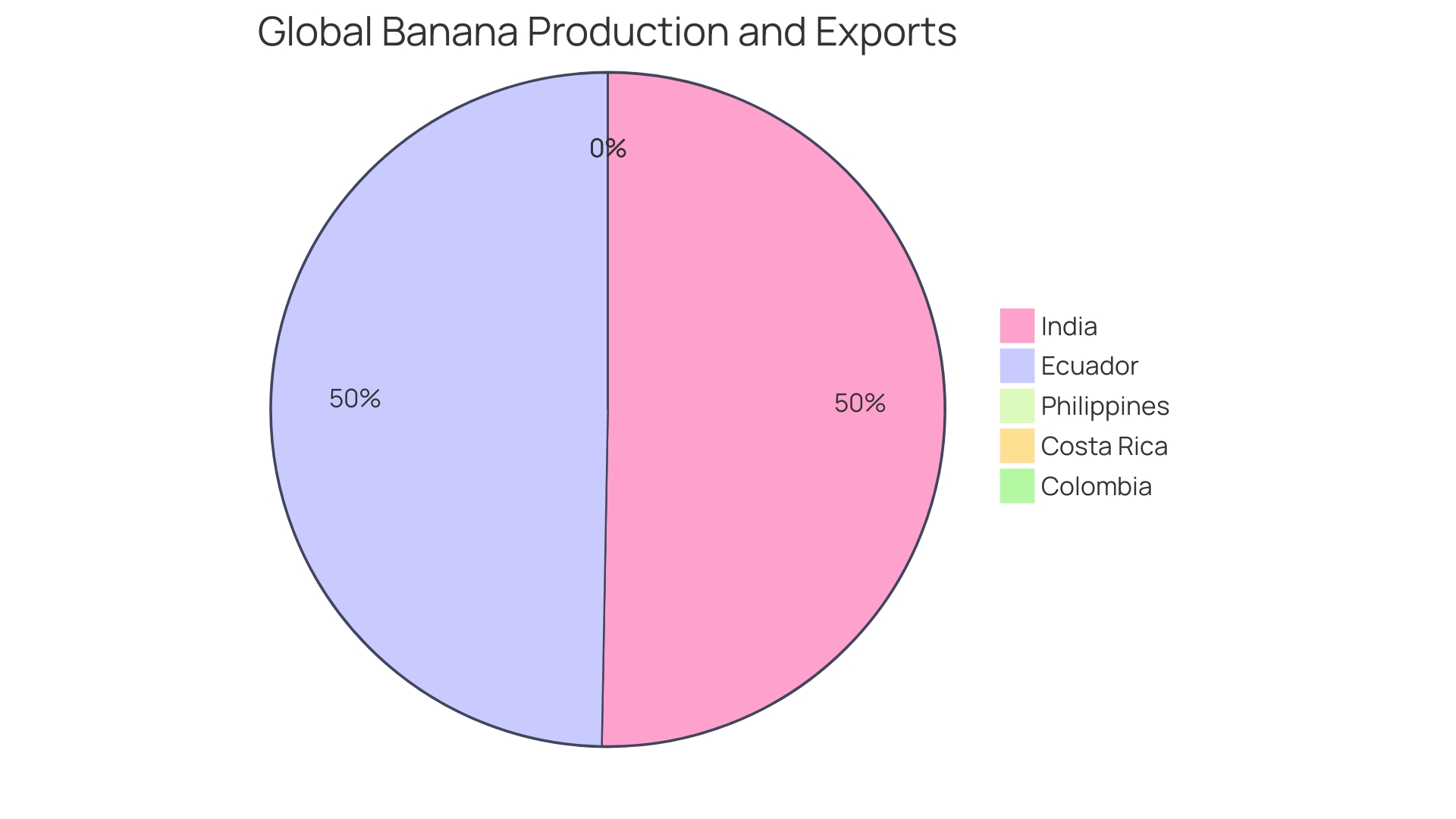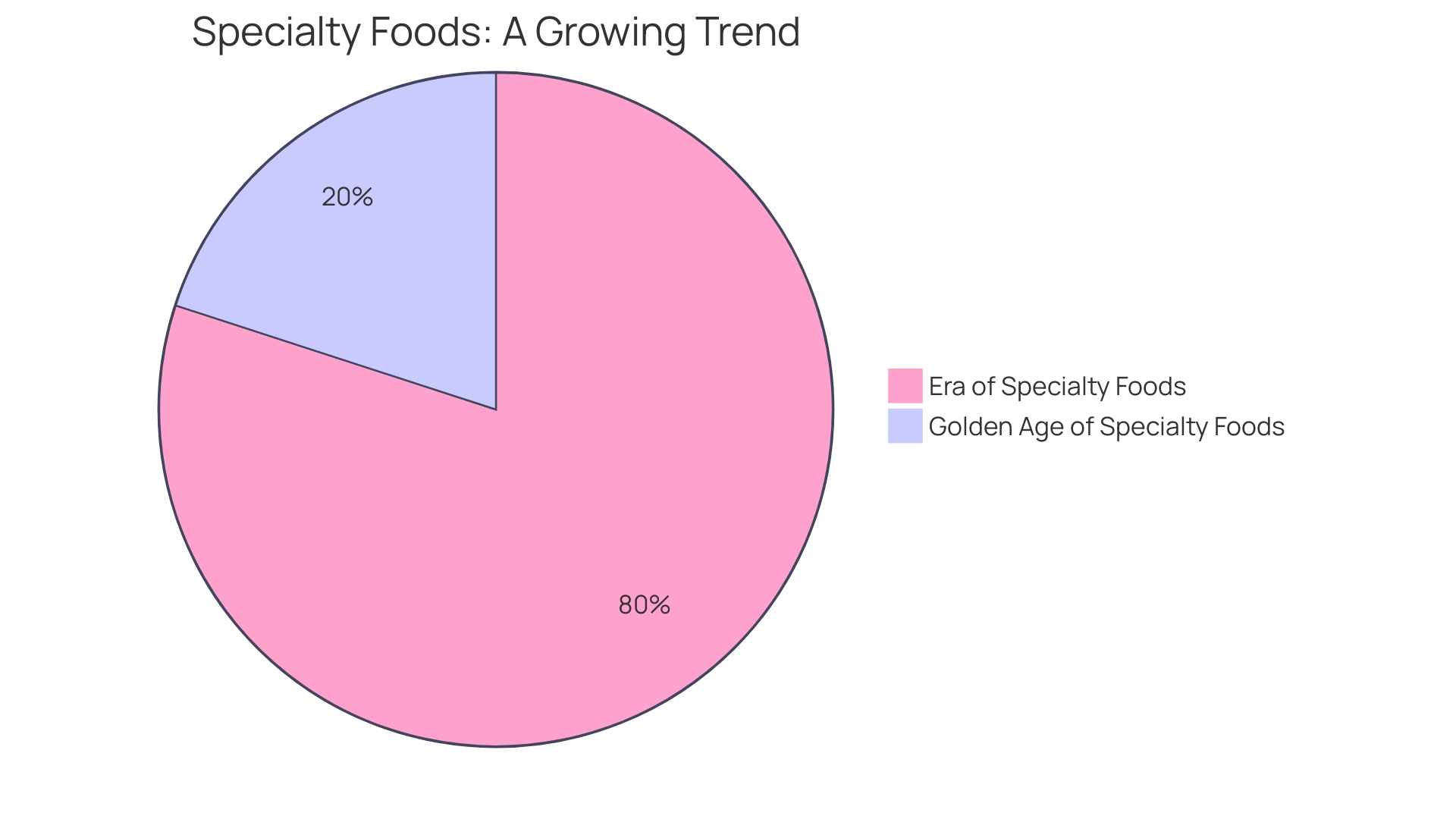Introduction
In the competitive realm of food retailing industry it's essential to grasp market trends and customer inclinations to thrive successfully in business ventures related to food stores.This piece delves into the aspects that aid, in the prosperity of a food store enterprise.It underscores the significance of establishing bonds with local communities presenting high quality products and crafting a memorable shopping journey.
The article delves into the importance of inventory control methods like leveraging technology and environmentally conscious approaches as well as practical examples, from a grocery stores innovative strategies to overcome obstacles and enhance profits highlighted through a case study discussion. Furthermore¸ it examines aspects and strategic planning¸ emphasizing the importance of thorough evaluation and a clearly defined business strategy plan.
To build an flourishing business that connects with the community, around them store owners can implement these tactics and adjust to the dynamic nature of the industry.
Market Analysis for Food Stores in the USA
Purchasing a grocery shop in the United States can be a business venture as an increasing number of shoppers seek high-quality products along with a seamless shopping experience. A comprehensive examination of the market could serve as your guide through the intricacies of the food industry. It's not just about analyzing data but also about understanding the community's atmosphere, knowing the preferences and requirements of your clients, and evaluating the competition in the industry.
Retailers like ALDI have set the standard by focusing on popular items and offering a budget-friendly shopping atmosphere for individuals to have an enjoyable time while making purchases at their establishments. Their approach of showcasing high-quality items that undergo taste testing at prices compared to alternative supermarkets demonstrates an effective way of attracting and retaining devoted patrons engaged. It's noteworthy that over 90% of ALDIs products undergo thorough testing, in their Test Kitchen to guarantee they meet or surpass the quality standards set by national brands. Ensuring quality at affordable prices and supported by a double assurance highlights the significance of offering a compelling value proposition, in the food retail industry.
The changing landscape has also seen the rise of internet-based grocery shopping trends revealed through studies showing a consistent increase in the number of people purchasing food supplies online from 2018 to 2024. This shift highlights the significance for prospective consumers to consider the digital buying patterns and online visibility when evaluating the profitability of a grocery establishment.
In events covered in the news media outlets have shown how crucial the surroundings and setting of a store can impact its success rate significantly indeed. The closure of Whole Foods Market in San Francisco due to increased crime rates and unruly behavior serves as a reminder of the necessity, for a safe and protected environment that ensures the well being of both clients and patrons alike.
In this evolving industry environment, it's essential to possess a profound comprehension of your client base. Conductin market research plays a role in determining demand market size and consumer preferences. For example younger restaurant goers are reshaping tipping norms signaling a change, in how consumers behave that could have significant effects on revenue and business models in the food sector.
Creating a business strategy is crucial for laying the groundwork for success in the business world. The plan should outline your intended audience and offerings as well as your pricing approach based on thorough market research and cost evaluations. In addition to this groundwork work is ensuring that you are compliant, with obligations and have completed the necessary business registration procedures – factors that contribute not only to starting up but also sustaining your operations over time.
In summary, assessing the achievement of a food market involves examining the broader perspective, including market tendencies, consumer behaviors, competition, and strategic choice making. It's, about creating a business that connects with locals sets itself apart in the market and adjusts to the constantly changing food retail industry environment.

Key Factors for a Successful Food Store Business
Operating a food market requires more than simply stocking shelves with items. It's about building a connection with the community and giving them an unforgettable experience. To ensure its success, it is crucial to understand the preferences of the individuals, just like how Rise Community Market in Cairo, Illinois did. The cooperative method they embraced, where community members have a vested interest in the enterprise, showcases the significance of allowing consumers to have a voice in what a establishment offers and represents.
When a grocery establishment evolves into a location that reflects the inclinations and needs of its clientele it prospers in the market. The importance of this alteration is highlighted by the occurrence of convenience outlets improving their food options to differentiate themselves and meet the growing requirements of patrons. It goes beyond providing food items—it's, about establishing an atmosphere and a shopping journey that is intimate and shared among shoppers.
Starting off on this adventure requires a thought out business plan as a crucial tool in navigating the path ahead. This plan serves as your guide to identify your target audience and customize your offerings to match preferences. Additionally it helps you set prices based on market research and cost evaluations. Essentially, the aim is to establish a retail outlet that offers high-quality merchandise, innovative pricing, excellent client support, and imaginative promotional approaches blending seamlessly.
Anticipating the future entails the development of grocery outlets as they adopt e-commerce and expand their retail horizons digitally while still giving priority to direct customer interaction and a diverse selection of products, for success.
Ultimately it comes down to establishing a place that acts as a focal point for the neighborhood. Akin to the guiding light that Rise Community Market has evolved into for Cairo residents. It involves tapping into the shared ethos of a venture along, with the strategic acumen of business experts and the meticulous plotting of a coherent business strategy to nurture a shop that is not only profitable but also deeply ingrained in the community's essence.
Inventory Management Strategies for Food Stores
Managing a food establishment relies greatly on efficient inventory control methods that entail meticulous preparation and continuous monitoring of stock levels to prevent surplus or insufficiency of items available. Utilizing storage space efficiently and fostering relationships with suppliers are also essential factors for success, in this industry. The adoption of inventory management software is becoming more prevalent nowadays as it enables tracking of raw materials and finished products to ensure accountability and prompt handling of quality concerns or product recalls when needed. These tools are also designed to keep track of expiration dates to help minimize waste in the stores operations.
Utilizing strategies such as Kanban inventory management aids in sustaining stock quantities by refilling inventory according to real usage patterns which can result in improved effectiveness and minimized wastage, within the manufacturing process This method has shown great proficiency in adapting to the ever evolving needs of individuals who value both well being and convenience.
In the sector it is crucial to regularly review and restock inventory to enhance supply chain efficiency. Creative approaches to managing inventory focus not on satisfying customer demands but also strive to meet sustainability targets. For instance alterations in delivery schedules can have an impact, in cutting down CO2 emissions supporting broader environmental conservation aims.
In a landscape of growth in the foodservice industry where there has been a documented increase of 20% in just two years operators of food establishments need to constantly come up with fresh ideas and improve their methods in order to remain competitive. The quest, for innovation should be. Goal oriented, beginning with a well defined vision and strategic planning that trickles down to concrete goals and practical strategies.
To sum up the points of effective inventory control in the food retail sector; it requires a mix of modern technology adoption; careful strategic foresight; and a dedication to eco friendly practices and inventive solutions, for success. By utilizing these methods fresh item availability can be maintained wastage can be reduced and the business can be primed for both profit gains and expansion opportunities.
Case Study: Overcoming Challenges in the Food Retail Industry
Examining an actual example demonstrates how a food retailer applied innovative strategies to succeed in a demanding market context. As an instance, a market named Food Lion, in Virginia, recognized an opportunity to improve pricing techniques for produce and reduce food waste. Specifically focusing on bananas. They realized that while bananas could generate a profit margin of 40% on the day this percentage often dropped to only 15% as the fruit ripened over time. They tackled this problem by implementing pricing strategies and effectively managing inventory to reduce losses and boost profits.
The case study illustrates how the establishment anticipated and adapted to shifts in customer preferences and the rise of shopping patterns by acknowledging the specific characteristics of the local market to tailor their product choices and pricing approach as outlined in a comprehensive business plan; this not only maintained the establishment's competitiveness but also maximized the value obtained from each dollar spent on groceries at home.
By utilizing AI-powered technology at the retail level to personalize loyalty incentives based on individual preferences and staying abreast of evolving consumer demands to enhance client interaction significantly. A strategic move lauded by experts in the field emphasizing the need to know your audience well and enhance your brand identity for a stronger market presence. After analysis and careful planning by the management team of the food market resulted in significant growth and positive feedback from contented customers further strengthening its position in the local community.

Financial Considerations for Buying a Food Store
Starting the process of buying a grocery store involves assessing its financial status through examining its financial records thoroughly and evaluating its profit margins and monetary obligations critically. Potential buyers need to consider the costs in comparison to the ongoing operational expenses and the expected profit margin. Examining enterprises such as ALDI can provide valuable perspectives because of their focus on delivering high-quality items at accessible prices. Specialty foods have become increasingly popular. Now make up 20% of overall sales with steady growth for the past 20 years or so! Yet there's a story from Yadkinville in North Carolina that serves as a warning about the risks of not pricing products in line, with the economy. It resulted in a food market closing! Any entrepreneur looking to purchase should definitely consider conducting a 'quality of earnings' check to ensure the establishment's profits can endure in the long term. By conducting financial analysis buyers set themselves up to make well informed choices and possibly become successful leaders, in the food market who skillfully navigate the intricacies of the industry.

Strategic Planning for a Profitable Food Store
Beginning a grocery business involves more than stocking shelves with items. It requires careful planning and a strategic mindset from the beginning onwards.You need to create a business plan that serves as the foundation of your business venture and guides your actions. In delving into specifics it is essential to understand the customers who will frequent your store. Their demographics and preferences. This information is crucial in shaping your selection to cater to needs and stand out in a competitive market.
A comprehensive business plan should include a pricing strategy that is based on detailed market research and cost assessment since the success of the business relies heavily on this aspect being well executed. For instance when setting prices for products such as bananas anticipation may suggest a profit margin of 40%; however factors, like discounts and waste disposal could reduce it significantly to 15%. This highlights the importance of having a financial plan that considers potential setbacks.
Deciding on the legal structure for your grocery business is a crucial decision that should not be taken lightly when going through this decision-making process—whether you opt for a sole proprietorship or contemplate the formation of an LLC or corporation; each alternative has its own effects on tax responsibilities and liability considerations as well as possible consequences, for raising capital.
In light of the growth in the foodservice sector and recent data indicating a substantial 2 year sales increase of 20% it is crucial to emphasize the significance of having a strategic outlook moving forward in this industry sectors development trajectory. A promising horizon awaits those who remain proactive and well equipped within the realm of food retailing per insights shared by Michelle Korsmo. The President and CEO, at the National Restaurant Association who astutely remarked that readiness today secures tomorrow's success. This advice particularly resonates with food store proprietors striving for profitability and expansion over the long haul.
Conclusion
In summary succeeding in the food retail sector requires a deep understanding of market trends and customer preferences. Establishing ties, with the local community and providing top notch quality products play vital roles in achieving success. It's essential to acknowledge the growing trend of grocery shopping and prioritize creating a secure and welcoming environment for customers.
Maintaining a run food store requires implementing efficient inventory management techniques like utilizing technology and incorporating environmentally friendly methods into the process. One effective strategy is to utilize Kanban inventory management and consistently monitor and replenish stock to boost supply chain effectiveness and minimize waste. By embracing ideas and establishing clear objectives in their operations food stores can ensure they always have fresh products available setting themselves up for increased profits and potential growth opportunities in the future.
Examples such as the Food Lion case illustrate how innovative approaches and changes in pricing strategies can result in profits and happier customers at a grocery store to consider financial factors like evaluating the stores financial health and conducting an earnings quality check before purchasing it is crucial for success Strategic planning involves understanding the customer base creating a thorough business plan and selecting the appropriate legal structure is vital, for running a successful grocery store.
In the food sector as a whole; knowing the market well and putting customers first are key factors for success alongside managing inventory efficiently with financial savvy and strategic foresight, in mind to help food store owners create successful businesses that resonate with their local communities and excel in the market.




